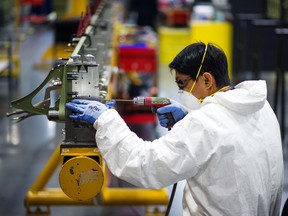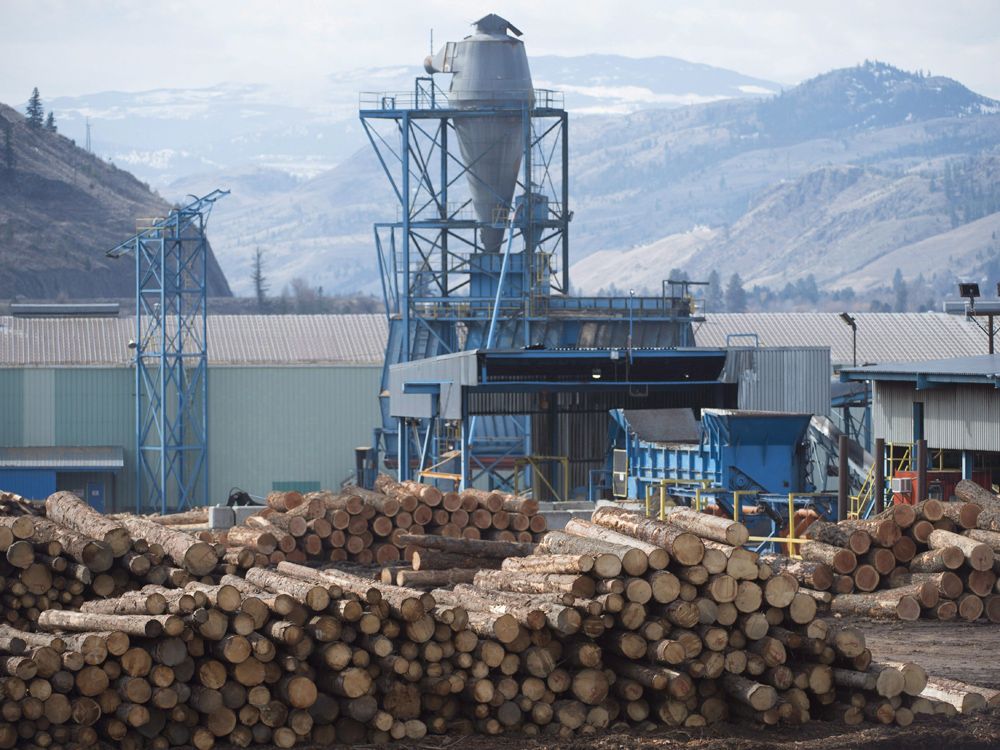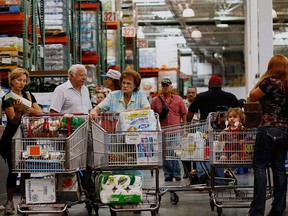‘Everybody right now is holding their breath’
Article content
Many manufacturers are “holding their breath” as a swell in COVID-19 infections and new rules threaten to make staffing shortages worse and drive down production volumes.
Advertisement
This advertisement has not loaded yet, but your article continues below.
Article content
About half-a-dozen manufacturing execs that Dennis Darby, chief executive of Canadian Manufacturers and Exporters (CME), spoke to on Tuesday were short staff — down between six and nine per cent — though it was still too early to tell what the broader trend is across the sector, he said.
“Suddenly, people are calling in sick,” he said. “If this persists, we’re actually going to see an effect on output.”
Starting Wednesday, Ontario will follow Quebec in rolling out more stringent public health restrictions, including the closure of indoor dining and a return to online instruction for students in response to what Ontario called “an alarming increase in COVID-19 hospitalizations.”
Restrictions on the hospitality sector are likely to weigh down gross domestic product (GDP) growth in January, but “the bigger risk” lies in widespread infections stopping people from turning up to their jobs, RBC economist Claire Fan said.
Advertisement
This advertisement has not loaded yet, but your article continues below.
Article content
“We really do see that as a bigger headwind,” she said. “Labour shortages were pretty widespread before Omicron.”
If this persists, we’re actually going to see an effect on output
Dennis Darby
Denise Allen, chief executive of the Food Producers of Canada trade group, said many of the companies she represents continue to rely on rapid testing as “one of the best frontline tools” available.
“Obviously, this variant spreads much more rapidly, so all of the safety protocols we’ve put in place so far in the pandemic have to be revisited and shored up,” she said. “Further stress on labour and manufacturing capacity is really the top priority right now, ensuring that production continues, and that workers remain confident and safe.”
In regions where schools have shifted online in response to high infection rates, manufacturers are facing a “double whammy” to their staffing levels, said Darby at CME.
Advertisement
This advertisement has not loaded yet, but your article continues below.
Article content
Employees are getting sick, or coming into contact with someone who’s sick, and those who are parents are also having to figure out who stays home with the kids.
“When we polled our members in November, there was huge optimism for 2022. And I think everybody right now is holding their breath,” Darby said. “We don’t know if (the shortages are) going to get higher. We don’t know how soon it’s going to go lower.”
3M Canada, part of the multinational manufacturing giant that produces N95 masks among other products, restarted production at its nine Canadian plants this week after a holiday break and was on track to hit scheduled production targets.
Company president Penny Wise said it was too early to speculate on what impact the Omicron wave could have on staffing.
Advertisement
This advertisement has not loaded yet, but your article continues below.
Article content
“Right now, we’re monitoring the situation really closely,” she said, adding the company has given parents impacted by the delayed reopening of schools added flexibility to switch shifts. “I don’t see a dramatic impact coming, because we have been pandemic-prepared for the last couple of years.”
Kraft-Heinz Co., which runs a massive facility with 47 production lines in Montreal, has also maintained its output despite a surge in cases in Quebec.
“We’ve seen some infections in the plant and some increased absenteeism, but it’s not massive double-digit absenteeism yet,” said chief administrative officer Av Maharaj, adding that few if any transmissions have happened inside the plant.
Advertisement
This advertisement has not loaded yet, but your article continues below.
Article content
“But Omicron is unknown in so many different ways that we’re looking at contingencies … including potentially hiring additional employees.”
Manufacturers may be worrying about having enough staff, but independent businesses, particularly in the food-service sector, are facing a different problem.
“I just spoke to a bunch of business owners this morning who are in the process of laying off staff once again,” said Dan Kelly, chief executive of the Canadian Federation of Independent Business. “A restaurant that may need 50 people all of a sudden needs five … The local movie theatres, the local bowling alley, their revenue drops to next to zero.”
Even though the latest restrictions aren’t as stringent as those earlier in the pandemic, he said the impact is more acute for businesses that have taken on high levels of debt to survive previous waves of COVID-19.
“The weight of the COVID debt over the last two years, I believe, will push many at this stage into permanent shutdown,” Kelly said. “It is just brutal.”
• Email: jedmiston@postmedia.com | Twitter: jakeedmiston
Advertisement
This advertisement has not loaded yet, but your article continues below.
Manufacturers fear Omicron wave could exacerbate staff shortages
2022-01-04 23:15:05






